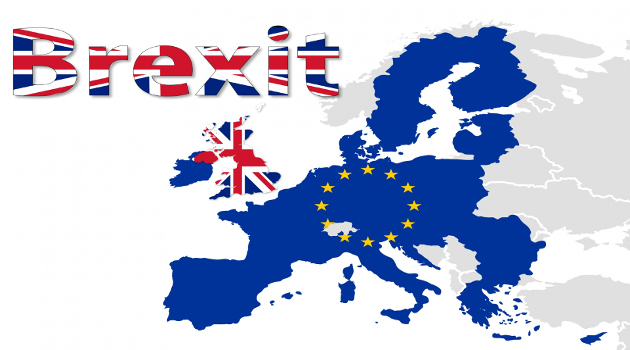I was interviewed yesterday about the economy. That meant talking about new jobs numbers, as well as speculating on what’s happening with the Federal Reserve.
For today’s column, though, I want to share the part of the interview that focused on the United Kingdom’s vote to leave the European Union.
If “Brexit” actually happens, there will be diminished trade between the United Kingdom and the European Union. That will be bad for both sides.
That being said, I pointed out that the United Kingdom is better positioned to prosper after Brexit. That’s definitely the case in the long run, but I think it could be true even in the short run.
By the way, at the end of this clip, I should have stated that the European Union doesn’t want to strike a mutually beneficial deal.
The crowd in Brussels was more than happy with the Brexit-in-Name-Only pact they imposed on the hapless Theresa May.
But the bureaucrats are so upset with Brexit that they won’t agree to a free trade agreement that would be good for both parties.
Since we’re on the topic of Brexit, here’s a radio interview I did with KABC, one of the big stations in Los Angeles. I had much more time to explore nuances, including the fact that the opposition parties don’t want an election since they fear it will produce a strong majority in favor of a Clean Brexit.
There are three things about the interview worth highlighting.
- First, as I explain starting about 3:15, Brexit is like refinancing a mortgage. It might cost a bit in the short run, but it makes sense because of the long-run savings. Indeed, that was my main argument when I wrote “The Economic Case for Brexit” back in 2016, before the referendum.
- Second, as I explain starting about 6:15, the same people who oppose Brexit were also the ones who wanted the U.K. to be part of the euro (the European Union’s common currency). Given what’s happened since, including bailouts, joining the euro would have been a big mistake.
- Third, starting about 11:50, I put forth an analogy – involving a hypothetical referendum to repeal the income tax in the United States – to illustrate why the issue is arousing so much passion. This is basically the last chance Britons have to reclaim self-government.
By the way, returning to the second point, the anti-Brexit crowd were the ones who tried to scare voters (“Project Fear”)  by claiming a vote for Brexit would tip the U.K. into recession.
by claiming a vote for Brexit would tip the U.K. into recession.
They were wrong on the euro, they were wrong on the economic response to the Brexit vote, and they’re wrong about actual Brexit.
In America, we say three strikes and you’re out.
P.S. There’s academic evidence that E.U. membership undermines prosperity.
P.P.S. The International Monetary Fund has consistently put out sloppy and biased research in hopes of deterring Brexit.

